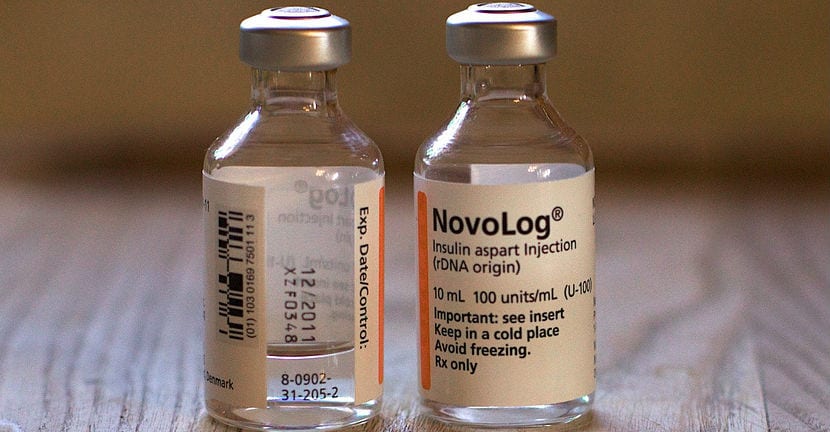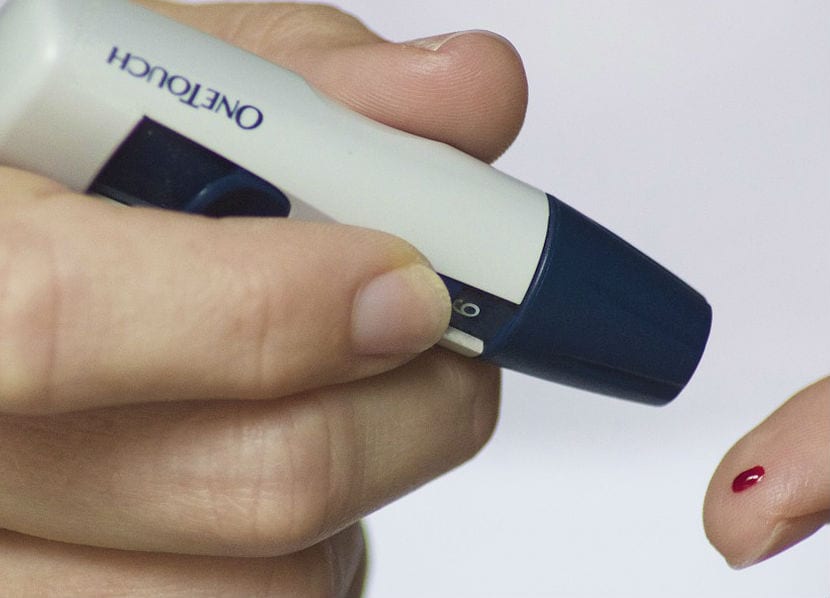
When we hear about Diabetes, we usually imagine an adult person, on many occasions with overweight or simply "higher", it is easy to identify Diabetes with this stereotype for how often it happens this way. But this case is only a posibility, we would be talking about type II diabetes, which is reached with age and sometimes with lifestyle habits No. especially healthy
But there is also the Diabetes in childhood, which appears every time in ages earlier, even in babies.
Types of diabetes
Type I diabetes
It is a type of diabetes that appears in the childhoodIt is not due to being overweight or due to more or less inappropriate eating or living habits.
This type of diabetes is caused by a default in the secretion in our pancreas of a hormone called "Insulin" who is in charge of control the levels glucose (sugar) in the blood. Insulin allows cells to use glucose of blood like power source. This failure in the production of Insulin causes a increase of the levels of glucose in the blood, the so feared "Hyperglycemia."
Causes
Are unknown The causes that cause this type of Diabetes to appear are almost always a set of causes, not just one.
There are "predisposing factors", as they are:
- Inheritance: We inherited the predisposition to have diabetes, diabetes.
- Autoimmunity: Sometimes our immune system, it is not known why, provokes a reaction against insulin-producing cells.
- Environmental damage: Really it is unknown currently what is that damage, could it be a virus, some food ... a path of investigation very interesting.
Type II diabetes
Although, traditionally, it is currently adult diabetes is increasing much its impact on teens and even tweens with obesity. In this type of diabetes the pancreas is able to produce insulin normally, but the body develops a resistance to action of this hormone. At first, the amount of insulin produced by the pancreas is normal or even high, but over time the production usually decrease.
Causes
- Heritage: Interestingly, type II diabetes has increased risk hereditary than type I.
- Life habits: Usually the root cause for the development of the disease. It is estimated that the 80% of people that they develop type II diabetes have obesity and a sedentary life.
Transmission

In either of the two types of Diabetes the treatment goes through change that life habits, combining a balance diet with the realization of exercise and controls glucose levels before and after of the food. When is not sufficient With changes in lifestyle, to control blood glucose levels it is necessary to put some treatment. In the Type I diabetes the treatment of choice is insulin, since the disease is due to low levels of this hormone, in the Type II diabetes may be necessary Insulin or some treatment orally.

Risks of Diabetes in Children
Until the children they learn to control their levels blood glucose (blood glucose levels) it is not unusual for either of these two situations to occur:
- Hypoglycemia: Descent sudden blood glucose. It is a situation of vital emergency. May appear seizures and if it is not treated in time it can cause brain damage and even death, very quickly. It is produced by an increase in spending without a good sugar intake. It can be given by injecting more insulin of adequate insulin, injecting the correct insulin and not eating enough or exercise intense without eating enough food.
- Hyperglycemia: Blood glucose levels high. It can appear for different reasons, how not to manage adequate insulin, take too many food or too much carbohydrates, for taking certain drugsBy Stress or for suffering any infectious condition. It is important to correct the problem as soon as possible.
- Diabetic cetoacidosis: Appears when no insulin or this is insufficient. In this case the body No. can use glucose as a source of energy and is forced to use the fat for Energy. The problem is that when the fat is decomposes to make energy produces chemical compounds called ketones which, at high levels, are toxic products.
- Psychosocial and / or psychological stress: Diabetes requires a great deal of discipline and self-control, sometimes children or adolescents look overcome due to the great demand that the cambios in life habits, they feel different of your peers, so you may experience a feeling de injustice and rebellion.
- The teenagers must assume the cambios emotional and physical puberty, in addition to assuming your self-control, pay attention challenge to diet, intake of alcohol, physical activities, etc.
La Education by the experts and understanding and affection by their Parents his back pillars fundamental for the child to live a adaptation without anguish. The role of Parents es fundamental to help the child in shop his illness and assume, over time, your self-care.